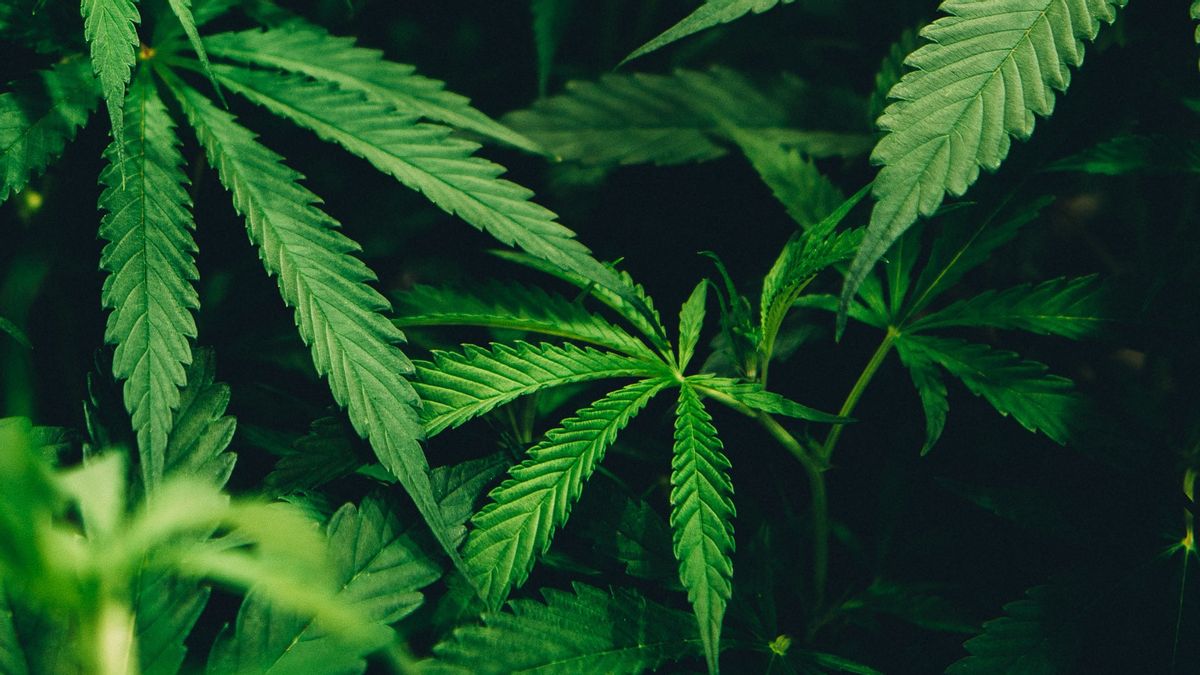JAKARTA - Thailand welcomes the results of the United Nations (UN) vote which removed marijuana from the list of dangerous substances. This momentum was welcomed by Thailand with a number of policies that encourage the use of medical cannabis. However, other Asian countries have taken a different stance, including Indonesia, which is still adamant about rejecting the benefits of marijuana.
Thailand's Minister of Tourism and Sports Phiphat Ratchakitprakarn has launched a medical marijuana tour program. The program will be held in eight provinces and will start next year. Thailand is very interested in educating the local population about the medicinal and therapeutic benefits of marijuana.
On the contrary, Singapore has expressed their rejection. Minister of Law and Home Affairs K. Shanmugam has been raving on social media in recent weeks. He has repeatedly said Singapore does not tolerate marijuana. He even called on the international community to act "on the basis of rationality and science."
The issue of legalizing world marijuana has returned to the spotlight since the beginning of this month, after the United Nations Narcotics Commission removed cannabis from Schedule IV of the 1961 Single Convention on Narcotics. On December 2, 27 countries supported this step forward. Some of them are the United States (US), India, Nepal, to Thailand. Meanwhile, 25 other countries opposed, including Russia, China and Japan. One country abstained.
Experts welcomed the steps of the UN Narcotics Commission. Those who have conducted various studies on the benefits of marijuana see the voting results as encouraging medical research and efforts to legalize marijuana more widely around the world.
Pressure on IndiaThe SCMP report indicates the diplomatic pressure India is experiencing under the US. India's decision to vote in line with the US raises questions. In previous times India was known as a country that was tough enough to oppose all forms of narcotics.
Recently, the Narcotics Control Bureau of India arrested television personality Bharti Singh and actress Deepika Padukone for drug possession charges. Indian politician Shashi Tharoor commented on that.
He, who has long struggled to decriminalize marijuana in the country, raised questions about India's consistency. "I was attacked for a policy recommendation to legalize it two years ago," he wrote.
“Now, even as (the Narcotics Control Bureau) arrested a Bollywood star for possession of marijuana, India has joined the majority in the United Nations Drug Commission in abolishing it as a dangerous drug. Ah okay! "
Improvement and expansion of research qualityWhatever political process occurs, this momentum can at least expand and improve the quality of cannabis research in the world. Gloria Lai of the International Drug Policy Consortium, a network of institutions based in London and Bangkok, said the reclassification of cannabis was a step forward, "primarily to recognize its value for medical use."
Gloria's Institute has long promoted open debate about cannabis policy as a medicine. He said the use of marijuana as medicine has increased in recent years. Even industrially the demand for products containing cannabis derivatives - including cannabidiol - continues to increase.
Khalid Tinasti, director of the Global Commission on Drug Policy said before the vote, researchers and doctors had to "go through enormous administrative and financial hurdles to gain access to marijuana and research it because it was deemed (not) to have therapeutic value."
"I want to make sure that eliminating cannabis from Schedule IV will allow for more and better research of cannabis and its ingredients," added Tinasti, who is also a visiting fellow at the Institute for Global Studies at the University of Geneva.
Tinasti also highlighted the over-commercialization of marijuana. That causes another problem in the marijuana market. The use of recreational marijuana is said to make it difficult to control the marijuana market. That's also what he said was why the December 2 vote focused on his medical goals. "It's about the use of certain ingredients in health system regulations, under the supervision of health authorities, and in the relationship between doctor and patient."
In this way, said Tinasti, global authorities will have a vision related to the legalization of cannabis, that the legalization of cannabis must be oriented to the development of research, science and medical interests. Tinasti does not deny that a number of private companies are lobbying hard to get more access to potential markets in the future.
The English, Chinese, Japanese, Arabic, and French versions are automatically generated by the AI. So there may still be inaccuracies in translating, please always see Indonesian as our main language. (system supported by DigitalSiber.id)








